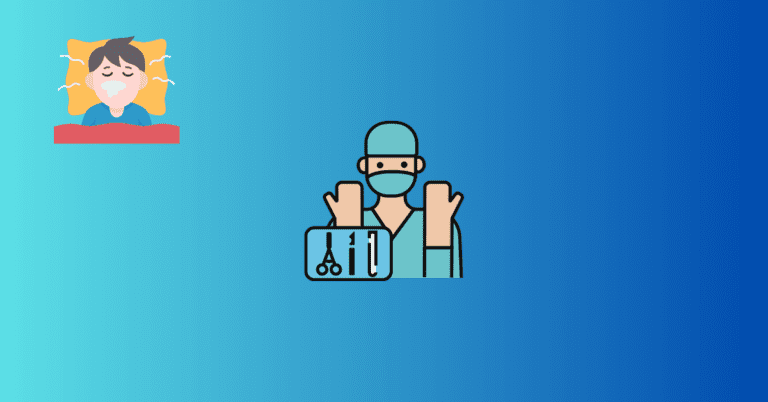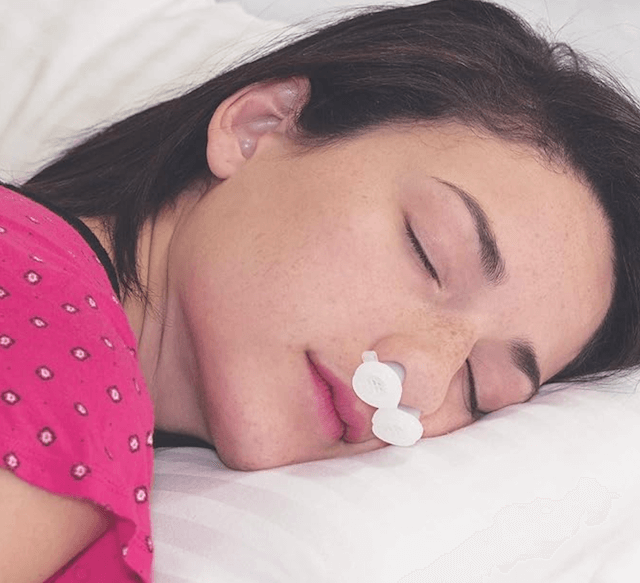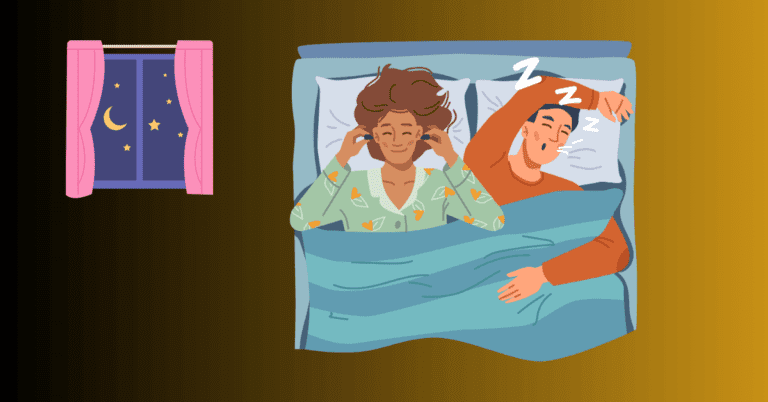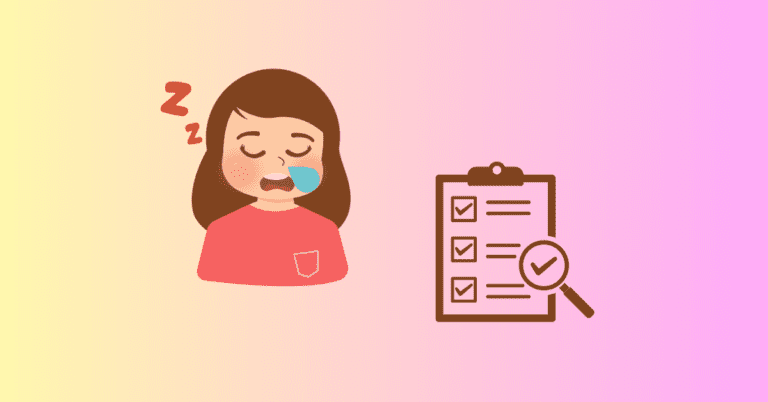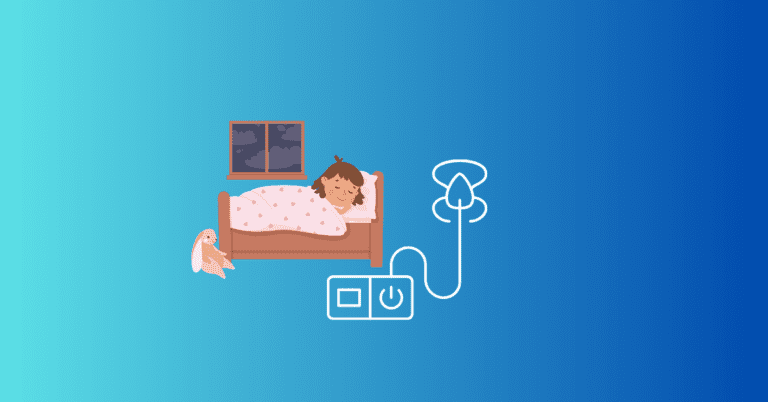The Connection Between Sleep Apnea, Tinnitus, and Hearing Loss
Jeremy Smith is a long-term CPAP user and sleep apnea advocate. After being diagnosed with severe obstructive sleep apnea, he created ByJeremySmith.com to help others navigate CPAP therapy through personal stories, gear reviews, and practical advice.
What is the Connection Between Sleep Apnea, Tinnitus, and Hearing Loss?
Sleep apnea is more than just snoring or feeling tired during the day—it can have wide-ranging effects on overall health.
One surprising area where sleep apnea can impact one’s hearing is tinnitus (ringing in the ears) and hearing loss. Many studies suggest a link between sleep apnea and hearing problems, including tinnitus.
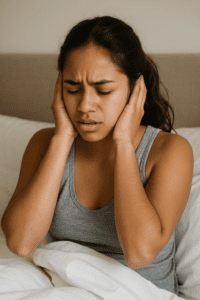
But what’s the connection? Let’s dive into how sleep apnea might affect your ears and what you can do to protect your hearing health.
1. Understanding Sleep Apnea and Its Impact on the Body
Sleep apnea is a condition in which breathing repeatedly stops and starts during sleep. These pauses in breathing, called apneas, reduce oxygen levels in the blood and put extra stress on the cardiovascular system.
Over time, untreated sleep apnea can lead to serious health issues like high blood pressure, heart disease, and even stroke.
But how does this relate to your hearing? It all comes down to how the lack of oxygen and disrupted sleep cycles affect various parts of the body, including the delicate structures of the ears.
2. How Sleep Apnea Can Affect Hearing
Several studies have explored the relationship between sleep apnea and hearing loss. The key factors contributing to hearing issues in people with sleep apnea include:
a) Reduced Oxygen Supply (Hypoxia)
During apneas, oxygen levels in your body drop. This condition, known as hypoxia, can affect blood flow to the cochlea (the inner ear), which is responsible for translating sound waves into nerve signals that your brain interprets as sound. Over time, reduced oxygen can damage the hair cells in the cochlea, leading to hearing loss.
b) Increased Inflammation
Sleep apnea triggers systemic inflammation throughout the body, including in the blood vessels and tissues in your ears. Chronic inflammation can damage the tiny blood vessels in the cochlea, causing irreversible hearing damage.
c) Hypertension and Vascular Problems
People with sleep apnea often have high blood pressure, affecting blood flow to the ears. Poor circulation and vascular problems can weaken the blood vessels in the ear, making it more susceptible to damage and hearing loss.
d) Nocturnal Hypoxemia and Ear Health
Nocturnal hypoxemia—low oxygen levels at night—is common in people with obstructive sleep apnea. This can negatively impact the entire auditory pathway, from the ear to the brain, leading to impaired hearing and increased susceptibility to tinnitus.
3. Sleep Apnea and Tinnitus: What’s the Link?
Tinnitus is another condition linked to sleep apnea, commonly described as ringing, buzzing, or hissing in the ears. While the exact relationship is still being studied, researchers believe that several factors connect the two conditions:
a) Blood Flow Disruption
As with hearing loss, reduced blood flow caused by sleep apnea can affect the inner ear and auditory nerves. This disrupted blood flow can lead to tinnitus, as the inner ear relies on a consistent supply of oxygenated blood to function correctly.
b) Elevated Stress and Cortisol Levels
Sleep apnea is associated with higher stress levels, and stress is a known trigger for tinnitus. When your body is repeatedly jolted awake from apneas, it releases stress hormones like cortisol and adrenaline, which can worsen or even trigger tinnitus symptoms.
c) Impact of Interrupted Sleep
Poor sleep quality exacerbates tinnitus. Due to the effects of sleep deprivation on the nervous system, people with untreated sleep apnea may experience increased sensitivity to the ringing or buzzing sound of tinnitus.
d) Inflammatory Response
The systemic inflammation caused by sleep apnea can also impact the auditory pathways, leading to heightened sensitivity to sound or the perception of phantom noises, like tinnitus.
4. Research on Sleep Apnea and Hearing Issues
Research suggests a significant association between sleep apnea and hearing problems. A study published in JAMA Otolaryngology-Head & Neck Surgery found that people with sleep apnea are more likely to experience hearing loss in both low and high frequencies. Another American Journal of Respiratory and Critical Care Medicine study found that sleep apnea increases the risk of hearing loss and tinnitus.
These findings suggest that sleep apnea’s impact on hearing health should not be overlooked, especially if you’re already at risk for hearing loss due to age, noise exposure, or other factors.
5. Who is Most at Risk for Sleep Apnea-Related Hearing Issues?
While anyone with sleep apnea can be at risk for hearing problems, some factors increase the likelihood of developing tinnitus or hearing loss:
- Age: Older adults with sleep apnea are more prone to hearing loss, as age-related hearing decline can be exacerbated by poor oxygenation and blood flow.
- Gender: Men with sleep apnea tend to have a higher risk of hearing loss compared to women.
- Lifestyle Factors: Smoking, alcohol consumption, and high caffeine intake can worsen sleep apnea and contribute to hearing issues.
- Noise Exposure: If you’re exposed to loud noises at work or during leisure activities, noise damage and sleep apnea can accelerate hearing loss.
6. How to Protect Your Hearing Health if You Have Sleep Apnea
If you have sleep apnea and are concerned about your hearing, there are steps you can take to minimize the risk:
a) Stick to Your CPAP Therapy
Consistent CPAP therapy can help manage your sleep apnea, improve oxygen levels, and reduce inflammation. By controlling your sleep apnea, you lower the chances of developing hearing problems.
b) Monitor Your Hearing Regularly
Schedule regular hearing check-ups, especially if you notice hearing loss or tinnitus. Early detection and intervention can prevent further damage.
c) Maintain a Healthy Lifestyle
Manage your blood pressure, quit smoking, and limit alcohol and caffeine intake. These lifestyle changes can improve overall vascular health and reduce the risk of hearing loss.
d) Protect Your Ears from Noise
Avoid exposure to loud noises and use ear protection when necessary. Noise damage, combined with sleep apnea, can accelerate hearing loss.
e) Address Tinnitus Symptoms
If you have tinnitus, consult an audiologist. They can recommend strategies like sound therapy, relaxation techniques, or hearing aids with masking features to help manage symptoms.
7. Final Thoughts: Don’t Ignore the Signs
The link between sleep apnea, hearing loss, and tinnitus highlights the importance of treating sleep apnea comprehensively.
If you have sleep apnea and are experiencing hearing issues, don’t ignore the symptoms—speak to your healthcare provider or an audiologist for further evaluation and management options.
Disclaimer: The content on this blog is for informational and educational purposes only and is not a substitute for professional medical advice. Always speak with your doctor or sleep specialist before starting, stopping, or changing any treatment or therapy related to sleep apnea or CPAP use.
